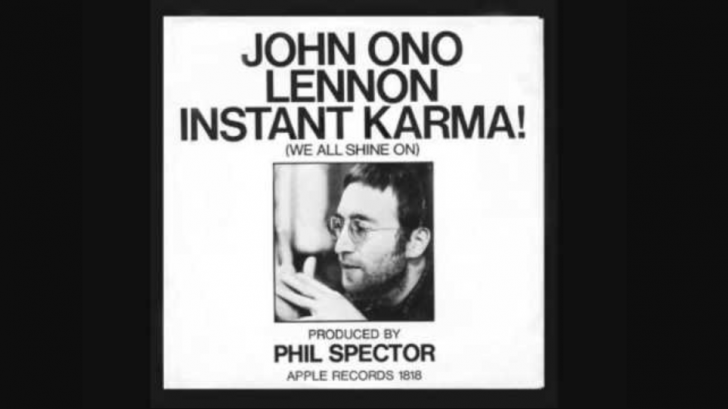On the morning of January 27, 1970, John Lennon had a glimpse of his future. He and Yoko Ono had just returned from a nearly month-long trip to Denmark, where Ono and John were visiting their daughter with her first husband, Anthony Cox, and his new wife, Melinda Kendall.
During one of the many conversations there, the idea of ”karma” was raised and dissected, and Lennon still had those thoughts in his head when he woke up that January day at his Tittenhurst Park home.
“Everybody was going on about karma, especially in the ’60s,” Lennon revealed to David Sheff, “but it occurred to me that karma is instant, as well as it influences your past life or your future life. There really is a reaction to what you do now. That’s what people ought to be concerned about. Also, I’m fascinated by commercials and promotion as an art form. I enjoy them. So, the idea of instant karma was like the idea of instant coffee: presenting something in a new form. I just liked it.”
Not long after waking up, he sat down at the piano and, using rudimentary chords not dissimilar to “Three mouses blind”, began to say “Instant Karma! (We All Shine On)”, which was both advice and advice.
In an hour he had a finished tune, and, fearing he would forget it, he played it over and over again. But why not record it too? He went to Apple’s office and sang it many times.
Later on, he started recording the song with George Harrison, keyboardist Billy Preston, and bassist and friend Klaus Voormann.
“John phoned me up one morning in January and said, ‘I’ve written this tune and I’m going to record it tonight and have it pressed up and out tomorrow—that’s the whole point: ‘Instant Karma,’ you know,’” Harrison later remembered. “So I was in. I said, ‘Okay, I’ll see you in town.’ I was in town with Phil Spector and I said to Phil, ‘Why don’t you come to the session?’ There were just four people: John played piano, I played acoustic guitar, there was Klaus Voormann on bass and Alan White on drums. We recorded the song and brought it out that week, mixed—instantly—by Phil Spector.”
Alan White, the future Yes drummer who had joined Lennon on stage at the Toronto Rock & Roll Revival concert the previous year, was also hastily recruited.

